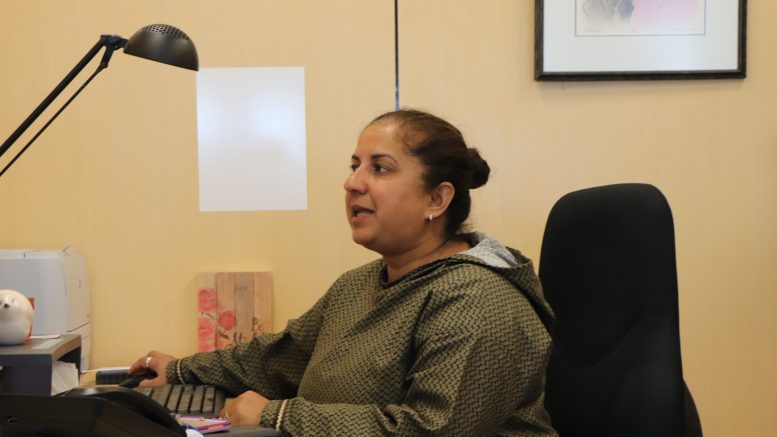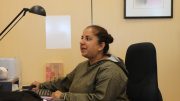The Chief Public Health Officer (CPHO) would like to provide an update to NWT residents on the coronavirus disease (COVID-19).
“As of March 10, no one in the NWT has tested positive for COVID-19,” Dr. Kami Kandola, CPHO of the GNWT said. “To date, 24 tests have been performed.”
The global picture of COVID-19 transmission is evolving quickly. However, the risk of acquiring COVID-19 within NWT remains low at present, says Dr. Kandola.
As of this morning, there are 79 confirmed cases in four provinces with one reported death. There is also evidence of community transmission in British Columbia, where cases are no longer linked to direct travel to an affected area or contact with someone who has traveled to an affected area.
The NWT Office of the CPHO is working closely with partners at all government levels to protect the health and safety of NWT residents. This now involves testing residents and visitors for COVID-19 if they show flu-like symptoms and have recently travelled outside the NWT within the past 14 days.
They will be requested to self-isolate until results are available. If a person should test positive for COVID-19, health officials will act quickly to identify and monitor the person’s contacts to prevent further spread.
Community-level transmission of COVID-19 in the United States and more recently in British Columbia is a reminder that this is possible in the NWT, and that the situation can change quickly.
Umesh Sutendra is a communications spokesperson with the Department of Health and Social Services for the GNWT.
“We have developed an NWT COVID-19 Pandemic Planning Guide and checklist for the health system to guide the review of local, regional and territorial pandemic plans,” Sutendra said. “GNWT officials have also reached out to communities, schools, daycare, day homes and the college, as well as Indigenous governments on actions being taken to prepare for COVID-19. The GNWT will continue to share new information with them to help in their preparedness efforts.”
NWT residents have an important role to play to prevent the spread of infection within our communities, Sutendra added.
“Residents should practice good etiquette for coughing or sneezing, frequently wash hands (or use hand sanitizers), stay home when ill, cleaning contaminated surfaces and contacting their local health unit if they have concerns,” Sutendra said. “These actions are effective for preventing the spread of COVID-19 and other common respiratory illnesses such as the flu, common cold and RSV.”
At this time the CPHO is advising residents to take the following proactive measures to protect themselves and their communities until further notice:
- Adults over 60 years of age, individuals with chronic conditions or weakened immune systems are at increased risk of severe outcomes. They should: Avoid travelling outside of the NWT Avoid receiving travelers if possible from affected areas and Avoid close contact with people who have flu-like symptoms (fever, cough shortness of breath)
- Everyone should avoid cruise ship travel. If you are returning from outside of the NWT, monitor yourself and your family members for symptoms like fever, cough or difficulty breathing for 14 days after your return from travel.
- If you or your family member develop symptoms, call your healthcare provider ahead of time so that they can arrange assessment and testing. When you arrive at a health care facility, you will be asked to wear a mask so you can protect others.
- Employers may want to reconsider non-essential work travel for staff outside of NWT, especially if traveling to affected areas or if attending meetings that receive travelers from affected areas.
- If you plan on traveling for personal reasons, check the Government of Canada for the latest travel alerts. If there is community spread of COVID 19 where you are visiting or if you are receiving visitors from an affected area, this will increase the risk of exposure to COVID-19.
- If you and your family have visited Iran or Hubei Province, China in the last 14 days, you and your family must self-isolate for 14 days since your last day in those regions, even if you are feeling well. Self-isolation means staying at home and not going outside. If you or a family member develops fever, cough, or difficulty breathing during your self-isolation, call your health care provider ahead of time so that they can arrange a visit. Remember, this advice can change quickly so it is important to monitor the Department’s public website for the latest information.
- Just like preparing for weather, ferry and ice road closures, you should have a plan in place that includes keeping two weeks of household supplies such as food, water, cleaning supplies, and medication, plus requirements for childcare or elder support. Finally, NWT organizers of events and gatherings are advised to assess their plans recognizing the COVID-19 outbreak is an evolving situation in Canada and the NWT. As such, the Chief Public Health Officer may direct actions to protect the health and well-being of residents, including cancelling or modifying events or gatherings.
For the latest information, visit www.hss.gov.nt.ca/covid-19 on a regular basis.
arthur.green@cklbradio.com
Twitter.com/artcgreen
Arthur C. Green is from Whitbourne Newfoundland and graduated from the CNA Journalism Program. Arthur also studied Business Marketing and Political Science at Memorial University in Essex England and St. John's Newfoundland. Green has worked as a spot news photographer/journalist with such news organizations as Vista-radio, CBC, CBC Radio, NTV, Saltwire and Postmedia in Alberta.









